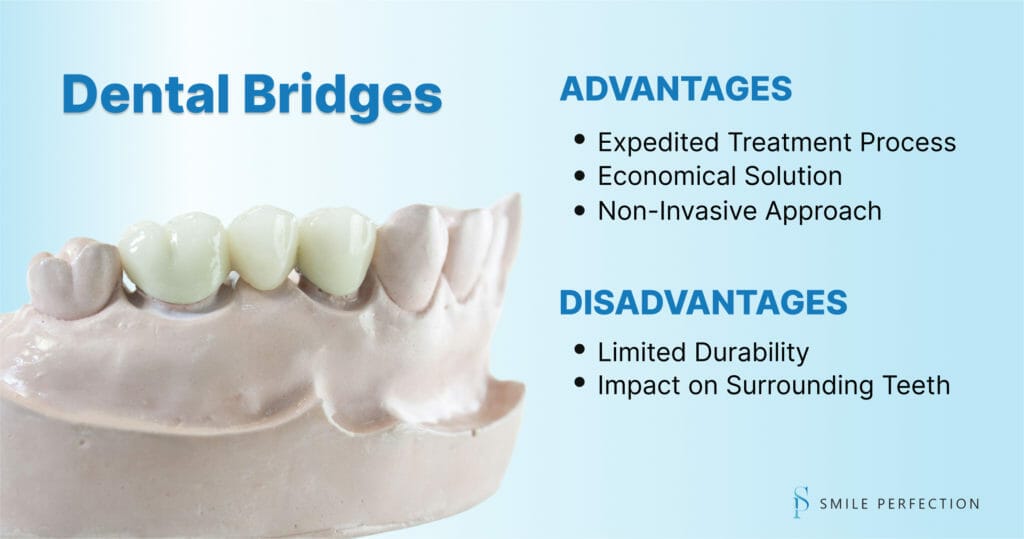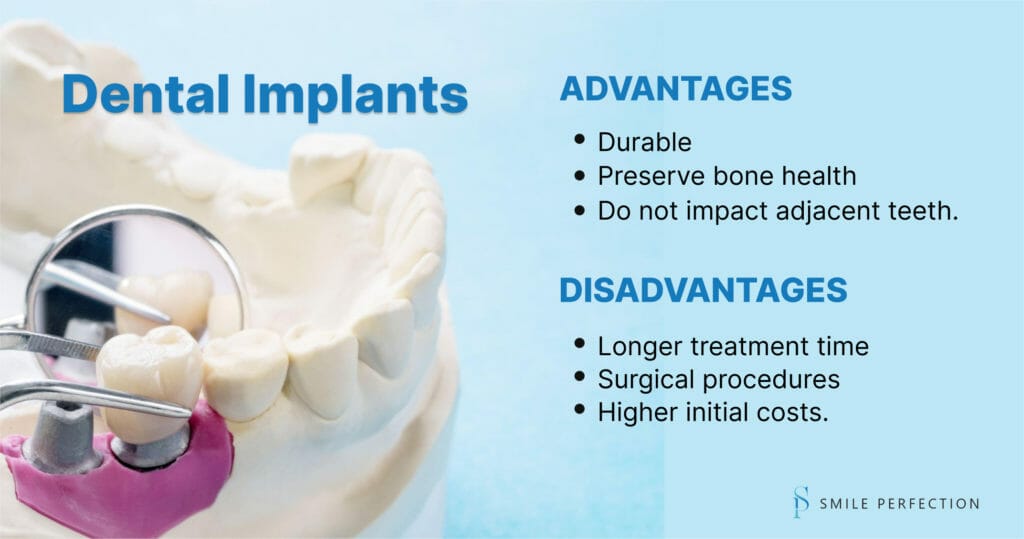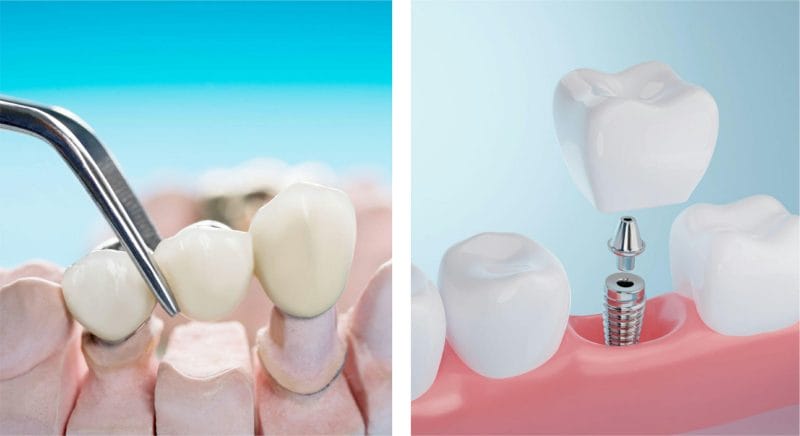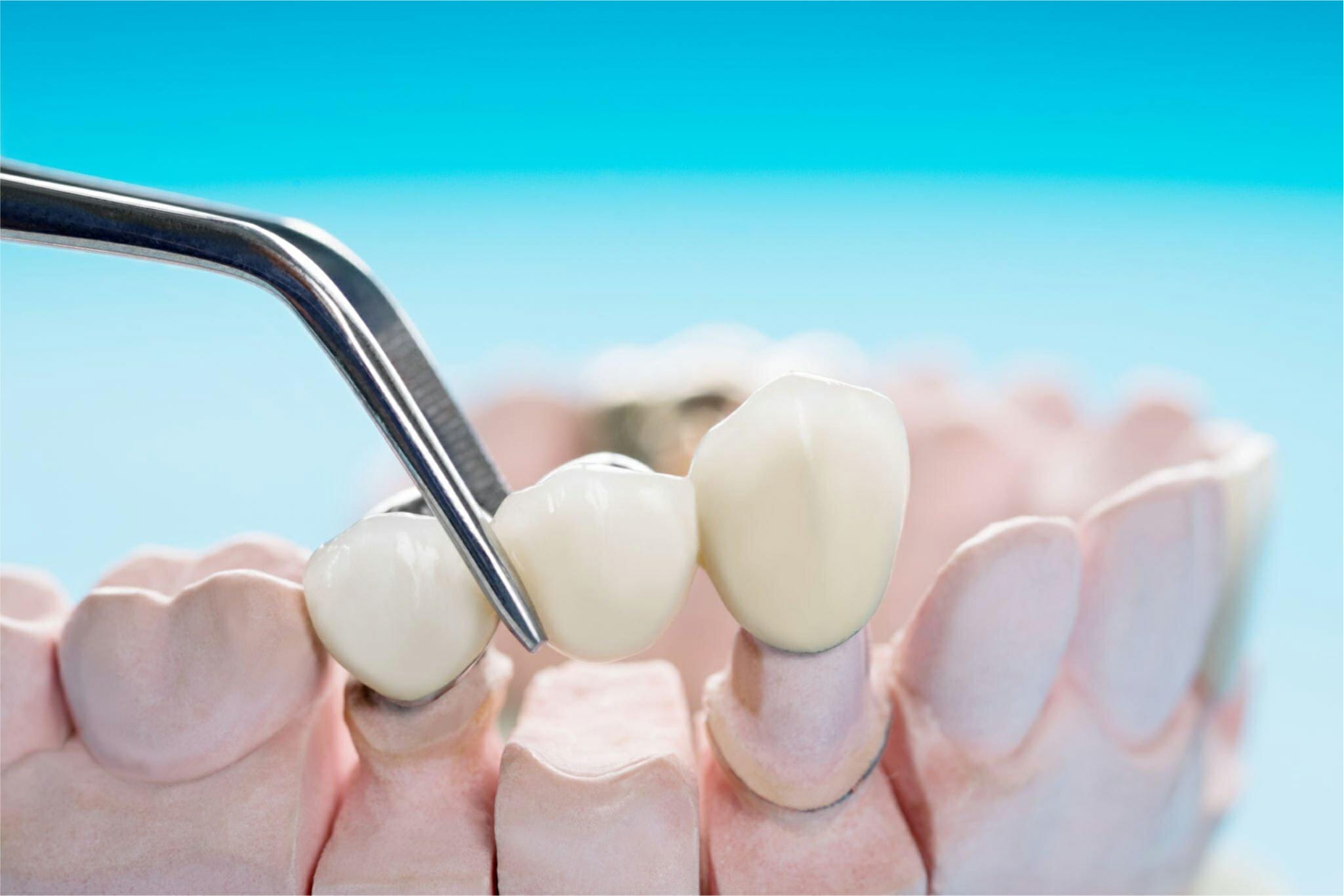As pillars of restorative dentistry, both options offer unique advantages in terms of tooth replacement, designed to cater to a wide array of patient needs and circumstances. But like other dental treatments, there are differences between a dental bridge vs. implants.
This blog post explores the intricacies of each procedure to offer insights into their characteristics, benefits, and potential drawbacks.
Read on to learn more.
Deciphering the World of Dental Bridges

A dental bridge is a prosthesis used to fill the void left by one or more missing teeth. It consists of two or more crowns for the teeth on either side of the gap—known as abutment teeth—and a false tooth or teeth in between.
There are different types of bridges, each suitable depending on the position of the missing tooth and the condition of the adjacent teeth. They include:
- Traditional Bridges: The most prevalent type, this involves the creation of a crown for the tooth or implant on either side of the missing tooth, with a pontic (false tooth) in between.
- Cantilever Bridges: Utilized when adjacent teeth are present on only one side of the missing tooth or teeth.
- Maryland Bonded Bridges: Comprising plastic teeth and gums supported by a metal frame, with metal wings on each side bonded to the existing teeth.
Advantages of Opting for Dental Bridges
Dental bridges offer several advantages over dental crowns and other alternatives. These include:
Expedited Treatment Process
Bridges can be completed in fewer visits compared to implants.
Economical Solution
Bridges are generally less expensive upfront compared to implants, making them a more accessible option for many patients.
Non-Invasive Approach
Bridges offer a non-surgical solution, eliminating the need for invasive procedures required by implants.
The Flip Side: Drawbacks of Dental Bridges
Bridges, despite their benefits, have their limitations, such as:
Limited Durability
Bridges may not endure as long as implants and might necessitate replacement or repair.
Impact on Surrounding Teeth
To secure a bridge, the adjacent teeth may need alterations, potentially affecting their health.

Dental Implants
Dental implants are titanium posts surgically positioned into the jawbone beneath the gum line, allowing the mounting of replacement teeth. They fuse with the bone, offering robust support for the surrounding natural teeth and gum tissue.
The Upside: Benefits of Dental Implants
Dental implants offer a natural look and feel, closely mimicking the natural tooth root, which enhances the experience of chewing or speaking. They are durable, preserve bone health, and do not impact adjacent teeth.
The Downside: Limitations of Dental Implants
However, dental implants do come with their set of disadvantages, including the need for surgical procedures, longer treatment time, and higher initial costs.

Pondering the Decision: Factors to Consider
Condition of Neighboring Teeth
If the adjacent teeth are healthy, an implant might be preferable to avoid altering them. However, if they exhibit significant decay or large fillings, a bridge might be more apt.
Density of the Jawbone
Adequate bone is essential to support an implant. If bone loss has occurred, a bone graft might be necessary.
Financial Considerations
While bridges may be more economical initially, considering long-term costs is crucial. Implants might require a larger initial investment but could be more cost-effective over time due to their longevity.
Procedural Differences
Dental bridges, being less invasive, can be placed in a single appointment, whereas implants necessitate multiple appointments and surgery.
Overall Oral Health
Implants are suitable for those with excellent oral hygiene and dental health, while dental bridges may be more suitable for those with periodontal disease or other oral health issues.
Secure Your Perfect Smile Today with Smile Perfection
Navigating the decision between a dental bridge and implants can be a pivotal step in your journey to optimal oral health. Both options present unique advantages, and the choice ultimately hinges on your individual needs, preferences, and circumstances.
Fortunately, Dr. Pandhi from Smile Perfection is here to guide you through every step, ensuring you make the most informed and beneficial choice for your dental well-being.
So, reach out to Smile Perfection to explore your options and embark on your journey to a flawless smile.




